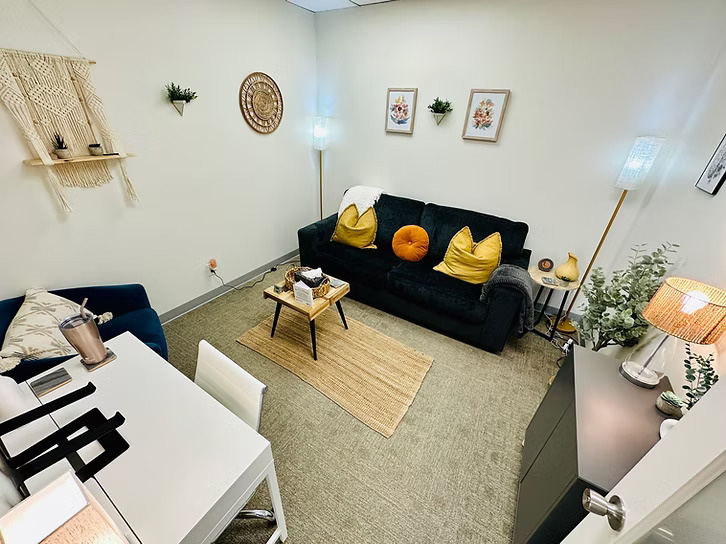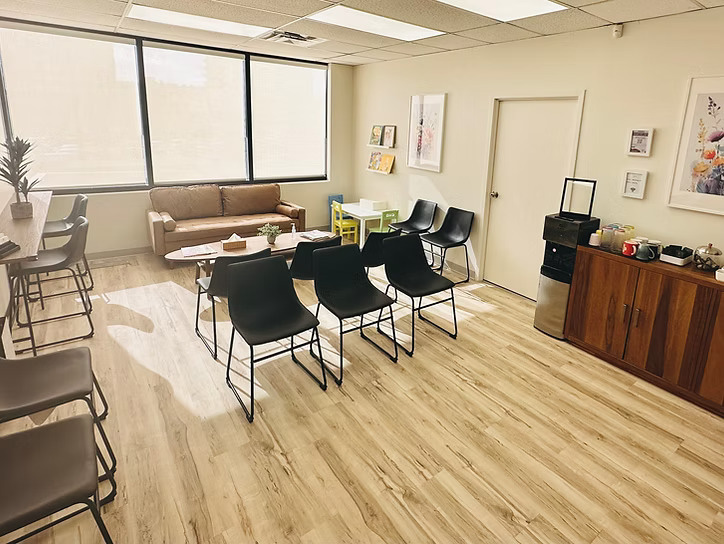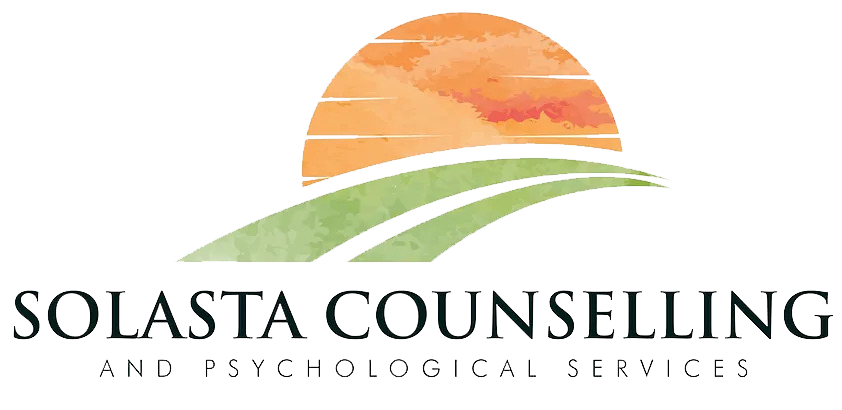Cognitive Behavioural Therapy in Calgary
We offer Cognitive Behavioural Therapy (CBT) to help you identify and change unhelpful thought patterns, beliefs, and behaviours.

What is Cognitive Behavioral Therapy?
Cognitive Behavioral Therapy is a structured, goal-oriented therapeutic approach that focuses on the relationship between thoughts, emotions, and behaviours. CBT helps individuals identify and reframe negative thought patterns and replace them with healthier, more constructive ways of thinking.
What is the goal of CBT?
The goal of CBT therapy Calgary is to help individuals gain awareness of their thoughts and behaviours, challenge distorted thinking, and develop healthier coping strategies. This process empowers you to take control of your mental health and reduce emotional distress.
CBT is typically a short-term therapy, with sessions lasting between 8-20 weeks, depending on the issues being addressed. During CBT, your therapist will work collaboratively with you to identify specific goals and tailor the sessions to your unique needs.
“How long does it take to see results with CBT?”
Many people start to notice improvements within just a few weeks of beginning therapy, with lasting benefits over time.

How Does CBT Work?
CBT is based on the idea that our thoughts influence our emotions and behaviours, and that by changing our thoughts, we can change how we feel and act.

For example, if you have the thought “I’m not good enough,” this can lead to feelings of sadness or anxiety, and may cause you to avoid situations where you might feel judged.
CBT helps you recognize these patterns and challenge the beliefs that lead to negative emotions and unproductive behaviours.
The CBT process typically involves the following steps:
Identifying Negative Thoughts
The first step in CBT is to become aware of negative or distorted thoughts that contribute to emotional distress.
“How can I recognize my negative thoughts?”
Your therapist will help you identify automatic thoughts, such as “I’m a failure” or “Nothing ever goes right,” and explore how these thoughts impact your emotions and behaviours.
Challenging Negative Beliefs
Once you identify negative thoughts, CBT encourages you to examine their validity.
“Are these thoughts realistic?”
Your therapist will guide you in asking questions like, “Is there evidence for this thought?” or “Would I say this to a friend?” to help you challenge the accuracy of negative beliefs and develop a more balanced perspective.
Reframing and Replacing Negative Thoughts
After challenging negative thoughts, CBT helps you reframe them with healthier, more positive alternatives.
“What if I could think more kindly about myself?”
By replacing unhelpful beliefs with realistic, compassionate thoughts, you can reduce emotional distress and develop a more positive outlook on life.
Behavioural Strategies
CBT also focuses on changing unproductive behaviours that are linked to negative thoughts.
“How can my behaviours influence my mental health?”
For example, avoiding situations out of fear or procrastinating due to low self-esteem can worsen anxiety and depression. CBT helps you develop practical skills to change these behaviours, such as exposure to feared situations or setting achievable goals.
Building Coping Strategies
CBT equips you with coping skills to manage stress, anxiety, and other difficult emotions.
“What if I don’t know how to cope with my feelings?”
Through mindfulness, relaxation techniques, and problem-solving skills, CBT helps you develop the tools to handle challenges with confidence.
Home Practice
One of the key aspects of CBT is the practice outside of therapy.
“How will I apply what I learn in therapy to my everyday life?”
Your therapist will encourage you to apply what you’ve learned in your daily life, such as journaling your thoughts, practicing coping techniques, or challenging negative beliefs in real-life situations.
Who Can Benefit from CBT?
CBT is an effective therapy for various emotional and psychological challenges. It’s commonly used to treat conditions like anxiety, depression, and stress.

This therapy helps individuals manage negative thought patterns and develop healthier coping strategies. CBT is also beneficial for trauma, phobias, and behavioural issues. It provides tools for improving self-esteem, resilience, and emotional regulation.
CBT equips clients with practical skills to make lasting positive changes in their lives, such as those living with:
Stress Management
Stress is a natural part of life, but when it becomes overwhelming, it can affect your emotional and physical health.
“How can CBT help me with stress?”
CBT teaches individuals how to manage stress by addressing negative thought patterns and building effective coping strategies.
Phobias
Phobias are intense fears of specific objects or situations.
“Can CBT help me overcome my phobia?”
Yes, CBT is highly effective in treating phobias through gradual exposure and cognitive restructuring, helping individuals confront their fears and reduce anxiety.
Anger Management
Anger often arises from negative or distorted thinking, such as feeling misunderstood or believing that you have been treated unfairly.
“Can CBT help me with my anger?”
CBT helps individuals identify the thought patterns that fuel anger and provides strategies for managing emotional responses and improving interpersonal relationships.
Post-Traumatic Stress Disorder (PTSD)
PTSD is often associated with intrusive thoughts, flashbacks, and hypervigilance following a traumatic event.
“Can CBT help me if I have PTSD?”
Yes, CBT can help individuals process traumatic memories, reduce symptoms, and learn to manage emotional triggers.
Anxiety Disorders
Anxiety often arises from distorted thinking patterns, such as excessive worry, fear of the unknown, or catastrophic thinking.
“Can CBT help with my anxiety?”
Yes, CBT is particularly effective for anxiety disorders, including generalized anxiety disorder (GAD), social anxiety, and panic disorder. CBT helps individuals challenge their anxious thoughts and learn new ways to cope with uncertainty and fear.
Depression
Depression can often be linked to negative thinking patterns, such as feelings of hopelessness, worthlessness, or guilt.
“How can CBT help me with my depression?”
CBT helps individuals identify and reframe these thoughts, improving their mood and overall outlook on life.
It also helps develop healthier behaviours and coping strategies to manage depression.
Obsessive-Compulsive Disorder (OCD)
OCD is characterized by intrusive thoughts (obsessions) and repetitive behaviours (compulsions).
“How can CBT help with OCD?”
CBT, specifically a form known as Exposure and Response Prevention (ERP), helps individuals confront their obsessions without engaging in compulsive behaviours, breaking the cycle of OCD.
Relationship Issues
CBT can also be helpful for addressing relationship challenges, such as communication issues, conflict resolution, and negative patterns of interaction.
“How can CBT help me improve my relationships?”
By identifying unhelpful thoughts and behaviours within relationships, CBT can help couples and individuals develop healthier communication strategies and build stronger, more fulfilling connections.
Why Choose Solasta for CBT therapy Calgary?
Our therapists work collaboratively with clients to develop tailored treatment plans that address specific concerns and goals. Whether you’re struggling with anxiety, depression, trauma, or relationship challenges, CBT can provide you with the tools you need to create lasting change and improve your mental health.
How Do I Know if CBT is Right for Me?
CBT is a practical and structured therapy that is effective for a wide range of issues. If you’re looking for a solution-focused, evidence-based approach that will help you understand and transform your thoughts and behaviours, CBT may be the right fit for you.
Our therapists are compassionate, experienced, and committed to helping you succeed in your therapy journey.
We offer a warm, non-judgemental space where you can feel safe to explore your challenges and develop the skills you need to improve your mental well-being.


Take the First Step Toward Positive Change
At Solasta Counselling, we are dedicated to helping you overcome challenges and achieve your mental health goals with CBT.
Calgary Counselling and Psychology Services
Our Calgary psychologists have a wide range of experience and expertise in understanding the unique needs of our clients and helping you reach your therapy goals.
CAP
All of our psychologists are registered with the College of Alberta Psychologist.
PAA
Many of our psychologists are members of the Psychology Association of Alberta.
CCPA
Many of our psychologists are members of the Canadian Counselling and Psychotherapy Association.
Therapists Specializing in CBT Therapy Calgary

Only

Only

Only

Only

Only

Only

Only

Only

Only

Only

Only

Only

Only

Only

Only

Only

Only
FAQs
What is CBT and how does it work?
Cognitive Behavioural Therapy (CBT) is a structured, evidence-based approach that helps you understand how thoughts, emotions, and behaviours influence each other. In CBT, you learn practical tools to challenge unhelpful thinking patterns, build coping strategies, and respond to stress or anxiety in more flexible, balanced ways.
What can CBT help with?
CBT is effective for a wide range of concerns, including anxiety, depression, stress, panic, low self-esteem, OCD, social anxiety, worry, negative self-talk, and life transitions. Many people also use CBT to support emotional regulation, confidence building, and healthier coping skills in daily life.
How many CBT sessions do I need?
Everyone is different, but many people notice meaningful improvements within 6–12 sessions. Some prefer short-term, goal-focused work, while others choose to continue longer to build deeper insight and skills. We will tailor the pace and length of CBT to your goals, comfort, and life circumstances.
Is CBT available online in Calgary?
Yes – you can access CBT both in-person at our Calgary location and through secure online counselling. Many clients appreciate the convenience of virtual CBT sessions, especially for busy schedules, mobility needs, or weather-related travel in Alberta.
How is CBT different from talking to a friend or getting advice?
CBT is more than talking – it’s a guided, structured therapy approach led by trained clinicians. Instead of offering advice, we help you understand patterns, develop emotional tools, and practice strategies that are backed by research. CBT provides a supportive space and practical skills you can use long-term.
We’re Located in Calgary, Alberta
We provide counselling and psychological services in-person in Calgary and online counselling throughout Alberta.
Suite 200, 1716 16 Ave NW, Calgary AB
*free parking behind the building
Our Calgary Office Space
Our thoughtfully designed counselling spaces are crafted to create a warm, welcoming environment where you can feel completely at ease.







Get Started With Solasta in Three Easy Steps
Find Your Therapist
Book Online
Choose a date and time that fits your schedule and receive instant confirmation of your appointment.
In-person or Online
Visit our welcoming Calgary office or meet with your therapist online from the comfort of your home.
Located in Calgary (on 16th Ave NW – opposite North Hill Centre and two minutes from SAIT), we support individuals across Alberta, with in-person therapy in our NW Calgary offices and secure virtual care province-wide. Free 90-minute parking behind the building.
